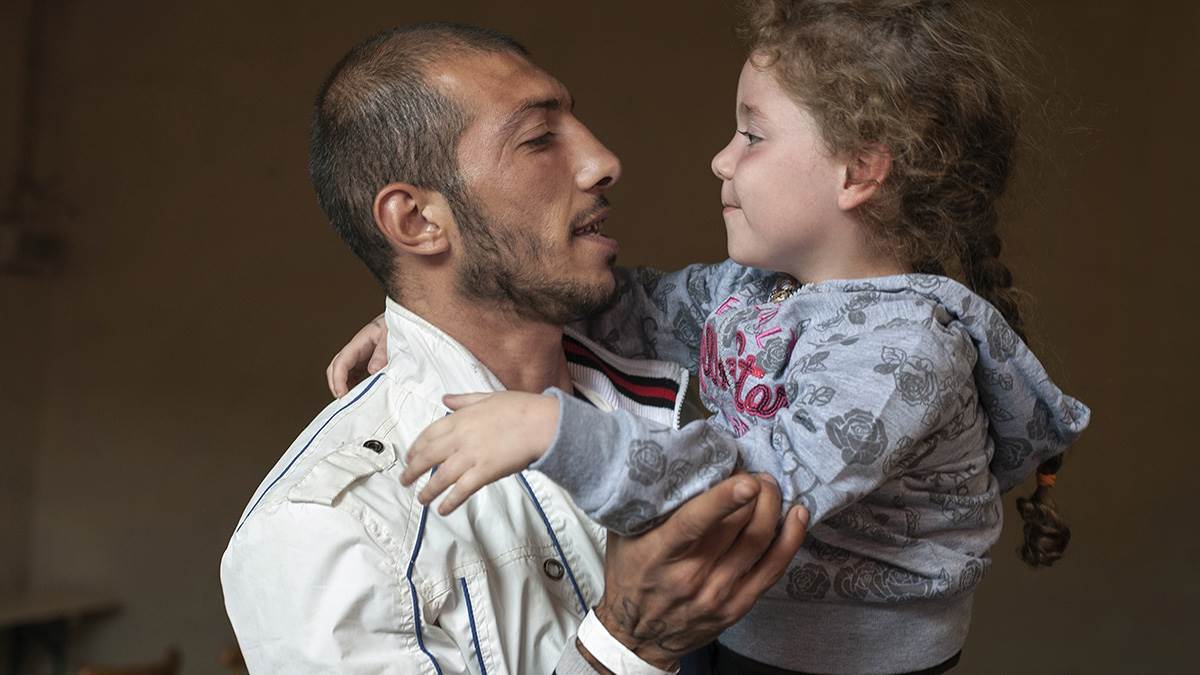Working with refugees and asylum seekers
Bookstart Coordinators work with a variety of partners to ensure that eligible children from refugee and asylum-seeking families receive their Bookstart packs.
Many Coordinators work with Ethnic Minority and Traveller Achievement Services or multi-agency forums that bring together partners who work with these specific groups. If you work with refugees and would like to get involved in the Bookstart programme please contact us.

Dual language books
Bookstart dual language books and guidance in community languages are particularly welcomed by families.
Find out more about dual language books
Get book-sharing tips and guidance in more than 20 languages
Who is a refugee?
According to the 1951 Convention relating to the Status of Refugees (the Geneva Convention), a refugee is someone who:
‘Owing to a well-founded fear of being persecuted for reasons of race, religion, nationality, membership of a particular social group or political opinion, is outside the country of his nationality and is unable or, owing to such fear, is unwilling to avail himself of the protection of that country; or who, not having a nationality and being outside the country of his former habitual residence as a result of such events, is unable, or, owing to such fear, is unwilling to return to it…’
In Britain, a refugee is a person whose application for asylum has been approved.
Who is an asylum seeker?
Anyone is allowed to ask for sanctuary in another country if they are suffering persecution in their own country. An asylum seeker is someone who has submitted an application for asylum to the United Kingdom authorities and is still waiting for a decision on whether this will be granted.
Find out more
National Association for Language Development in the Curriculum
Local authority EAL and EMA services All local authorities have additional funding for EAL learners through the Ethnic Minority Achievement (EMA) Grant. This grant is often used to finance a central local authority team with a particular responsibility for EAL and ethnic minority issues. The local authority team may run professional development programmes, manage specific projects and produce guidance documents and materials. The teams usually also support children from refugee and asylum-seeking families.
Celebrating its 20th anniversary this year, Refugee Week is a UK-wide programme of arts, cultural and educational events that celebrate the contribution of refugees to the UK and encourages a better understanding between communities. Refugee Week 2018 will take place from 18-24 June and could be an ideal opportunity to promote Bookstart to professionals working with refugees and asylum seekers and also to the families themselves.
Advice from practitioners
BookTrust asked practitioners who work with refugee and asylum-seeker children and families in England for their advice and guidance.
How to get in touch with groups working with refugees
- Find an organisation that is already working with refugees and asylum seekers and understands the problems they face on a short and long-term basis, for example Citizens UK and the Red Cross
- The Teaching English for Kids British Council website may be a useful starting point
- Contact local organisations e.g. libraries, to see if they are working with refugees already, and if they can support your work in any way
Some key considerations when working with this group
- Content should always offer some element of hope and assurance that there are always people who care
- English is typically an additional language, picture books are therefore a very valuable resource
- Dual language books can be found in some local libraries and BookTrust dual language books can be ordered by Bookstart Coordinators
- Consider the family's religion - books may need to be checked to ensure they are appropriate for the religion of the family. If visiting families, please consider the religious needs, but also the overall family needs
- Every family is unique, be flexible with your gifting to meet the needs of the family
- Parents may not be literate themselves, so explain that talking around the pictures in books is just as good as reading the story. Speak about storytelling and rhyming in both English and their home language
- The concept of rhymes can be difficult for some families to understand, as it may not be part of their culture. Work with the family to develop their knowledge, understanding and experience of rhyming and singing
- Start off by keeping rhymes simple, for example Head, Shoulders, Knees and Toes
